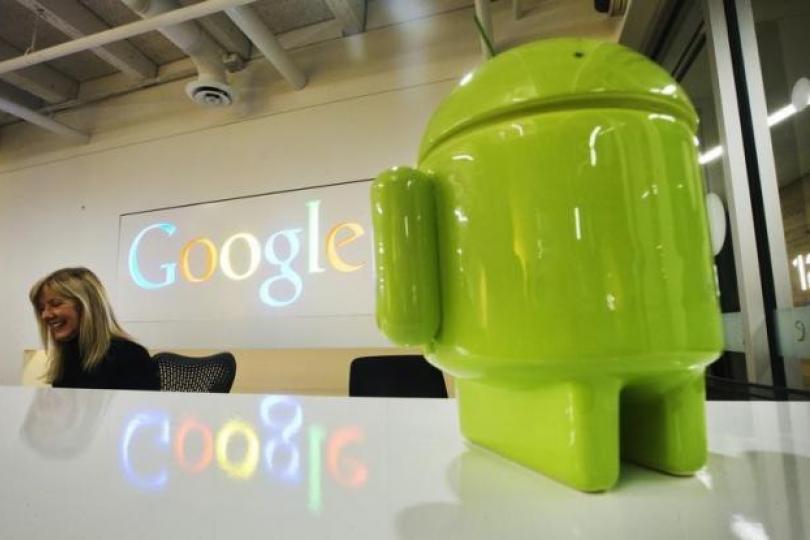
Snowman’s “Alto’s Adventure” caused a stir when it launched on Android Thursday. The downhill skiing game is priced at $2.99 on iPhone, but on Google’s platform it’s free with in-game bonuses available for purchase. Why the price difference? The game’s developers say Android apps are pirated so frequently that charging for downloads has become almost pointless. And Android owners are, on average, less affluent than Apple customers — meaning they’re likely to spend less on apps.
But that doesn’t mean developers are set to ditch the Google OS, as companies like Snowman are coming up with creative new ways to monetize their Android products.
Snowman cited data from Ustwo Games to justify its pricing decision. Ustwo develops “Monument Valley,” and in January 2015 the company revealed that just 5 percent of the game’s Android installs were paid for. A “small portion” of the remaining 95 percent were legitimate and included free copies handed out to the press, while the others were pirated. On iOS, 40 percent of installs were paid for. That’s still less than half, but it represents a significantly lower rate of piracy than what prevails on Android.
Other developers have noticed the same. Coffee Stain Studios has sold around 190 copies of “Goat Simulator” on Android in China, but analytics show thousands of people playing the game, according to Armin Ibrisagic, a game designer at the studio. Bedtime Digital Games’ “Back to Bed” had a 99 percent piracy rate on Android when lead creative designer Jonas Byrresen wrote about the issue in October 2014.
Snowman founder Ryan Cash said piracy is not the only reason behind his move to make “Alto’s Adventure” free. “I think it has to do with piracy, but also perhaps with the actual clientele,” he said. “I don’t want to throw all Android users in a basket and say that they don’t pay for apps, but it definitely seems like there’s a noticeable trend that iOS users are happier to spend money [upfront] on apps.”
Android apps are distributed in an APK (Android application package) file. Hackers can crack these APKs, bypassing security checks that look to see whether the user bought the game. Unlike the locked down iPhone, where it is much harder to work around the core software, Android is open source and code accessible. Hackers then distribute the apps on select sites and torrent listings. Users then “sideload” the cracked APKs onto their devices by asking Android to allow installation from unknown sources.
The problem is, there’s only so much Google can do to combat piracy. By design, Android is more susceptible to piracy than iOS. Its open nature means consumers can easily install apps from outside the Play Store.
If iPhone owners want to install software from outside the Apple App Store, they have to jailbreak their phones, a lengthy process that Apple regularly does via software updates, or use the Xcode developer tools, which requires access to the app’s source code. “Android has always been a relatively more open platform than iOS,” said Jack Kent, an analyst at IHS.
On the handset maker side, it’s hard to fight back. While phone manufacturers like Samsung, HTC and LG could in theory clamp down on downloads from outside the Play Store, “sideloading” has legitimate uses. Developers, for example, may want to test their apps on devices before launch.
On the other hand, widespread piracy might not exactly be bad news for handset makers. “Ecosystems drive mobile OS success, and in this case a thriving ecosystem, even if it’s full of pirated software and clones, still drives plenty of Android device sales,” said Forrester analyst Michael Facemire.
There’s also the question of how much consumers are willing to spend on apps. iPhone owners on average have higher incomes and so are less likely to resort to piracy to get their gaming fix. An August 2014 report from comScore showed the median income of iPhone users is $85,000. On Android, it’s $61,000. That should come as no surprise. While Android is available on a wide range of devices, iOS is a platform limited to premium-priced Apple products.
If people aren’t buying premium apps, developers won’t make money charging premium prices. While the Google Play store led on global app downloads in the third quarter of 2015, with 90 percent more than iOS, iOS store revenue beat out Google Play by 80 percent, according to an October report from analysis firm App Annie.
“It’s not uncommon to find that premium-priced titles fair much worse on Google Play than they do on iTunes, it’s just indicative of the purchasing habits of those two demographics,” said Dan Gray, studio head at Ustwo.
Source: International Business Times

